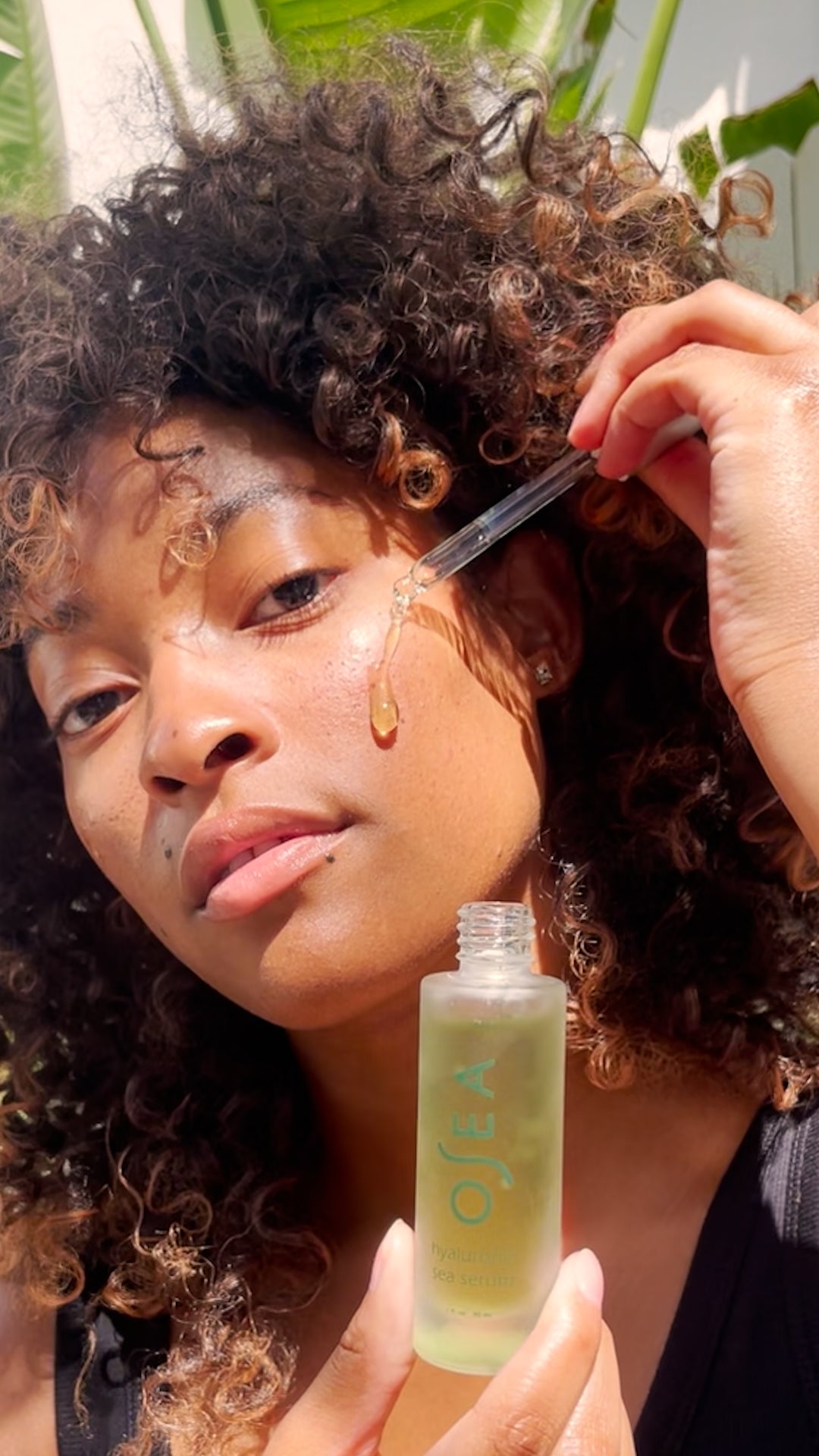Healthy skin is hydrated skin. Every cell, tissue, and organ in our bodies needs water to function properly, and a lack of water in the skin leads not just to dryness and more fine lines and wrinkles, but also to dullness and a loss of elasticity. While we all know that drinking plenty of water is key to keeping our bodies hydrated, there are other ways you can help your skin maintain the moisture it needs: enter Hyaluronic Acid.
What is Hyaluronic Acid?
Humectants are substances that attract and bind to water, and Hyaluronic Acid is the holy grail of humectants, capable of binding over one thousand times its weight in water. While Hyaluronic Acid is naturally present in our bodies, as we age and are exposed to oxidative stress caused by pollutants and UV irradiation, natural levels deplete, resulting in a loss of skin moisture.
What is Hyaluronic Acid made from?
In clean skincare formulations, Hyaluronic Acid is derived from plants such as potatoes and beans through microbial fermentation and is available in different molecular weights. Those with a low molecular weight absorb more easily and deliver hydration deep into the skin; while higher weights remain closer to the skin’s surface. So for maximum efficacy, look for multi-weight formulas.
What does Hyaluronic Acid do?
Because hydration is the key to healthy skin, the regular use of Hyaluronic Acid has multiple benefits. By boosting your skin’s hydration levels, Hyaluronic Acid’s plumping action reduces the visibility of fine lines and wrinkles. By improving overall skin health, it also improves barrier function.
How to use Hyaluronic Acid the right way
Hyaluronic Acid is easy to incorporate into your skincare routine, but there is a trick when learning how to use it properly. Because humectants pull moisture from wherever they can, when used incorrectly, Hyaluronic Acid can actually dehydrate your skin. Hyaluronic Acid therefore must always be applied to slightly damp skin and should always be followed by an emollient moisturizer like Squalane, Shea Butter or Jojoba Oil to keep that hydration locked in.
Hyaluronic Acid is suitable for all skin types and has not been linked to any adverse reactions such as irritation or redness. By incorporating this hero hydrator into your skincare routine, you can boost your skin’s moisture levels and restore plumpness and elasticity instantly.
